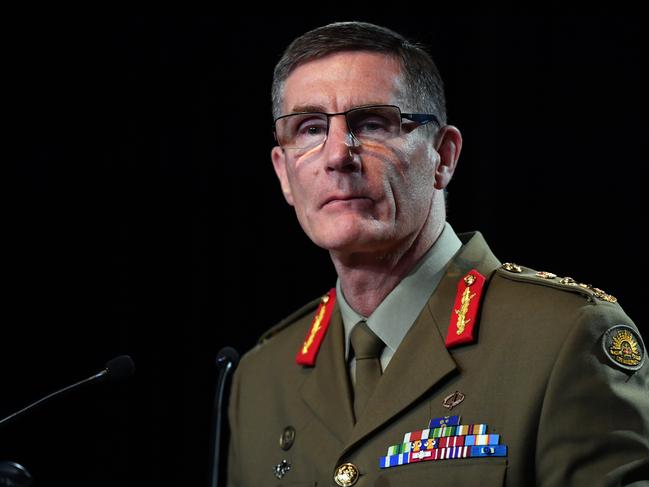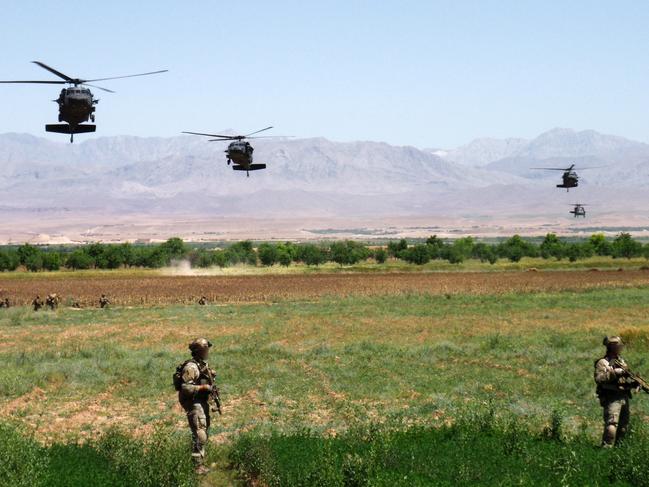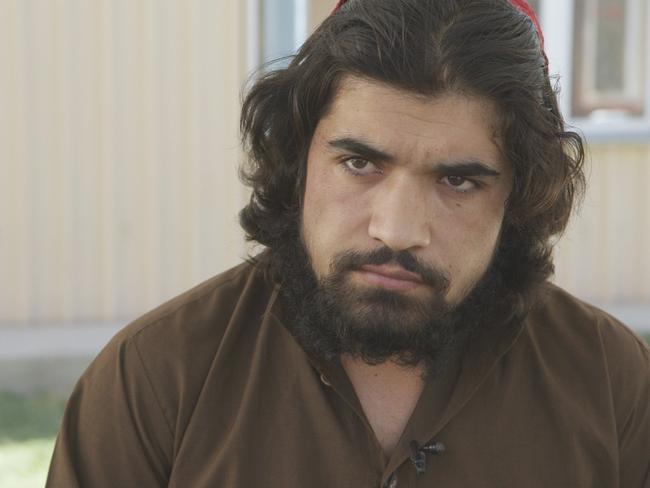War crimes inquiry: Easy to judge our troops from the comfort of Parliament House
It’s easy to sit in judgment on Australian soldiers accused of war crimes if you’ve never had to put your life on the line in battle, writes Piers Akerman.
Opinion
Don't miss out on the headlines from Opinion. Followed categories will be added to My News.
“People sleep peacefully in their beds only because rough men stand ready to do violence on their behalf” is a phrase attributed to Rudyard Kipling, George Orwell, Winston Churchill and others but let’s not fight over its ownership.
Its sentiment is almost universally held by those familiar with conflict.
People in Western societies live peaceably largely because there are men and women in our security forces who are prepared to put their lives on the line to protect us.
The notion that these forces draw their recruits from those who hope to kill or maim innocent civilians is absolutely repugnant but there are many wishy-hopey folk on the Left, particularly, who hold this belief.
Former NSW Judge Paul Brereton’s four-year investigation released on Thursday found “credible information” that up to 25 former and serving soldiers were involved — and covered up — alleged war crimes in Afghanistan during the nation’s longest war, and recommended 19 face criminal investigations.
He said what his report discloses is “disgraceful and a profound betrayal of the Australian Defence Force’s professional standards and expectations”.
He found it credible that junior soldiers were ordered to shoot unarmed prisoners to achieve their first kill in a practise known as “blooding”, and that spare weapons or radios known as “throwdowns” were planted on bodies to provide cover for the killers.

Defence Force Chief Angus Campbell, who commissioned the Brereton inquiry when he was Chief of Army in 2015, has stripped awards from the most notorious unit and from more than 3000 troops who served in Afghanistan, and all special forces soldiers will now have to wear body cameras to record their actions.
From the comfort of the green and red benches in Parliament House, the alleged behaviour has been roundly condemned by those who usually clamour for selfies with our decorated heroes. The rush to dump upon those who volunteered their services is nauseating. The tsunami of apologies will only hamper prospects of fair trials.
Westerners have rules to follow in warfare and these were and are overwhelmingly observed by Australians during conflicts from the Boer War, World War I, World War II, Korea, Vietnam, Iraq and Afghanistan.
In World War II, German, Japanese and Russian troops ignored the Geneva Convention and that German and Japanese military leaders were executed for war crimes.
The Russians, among the worst perpetrators, escaped because in those pre-Cold War days, they were our allies yet their reputation for brutality from Asia to Europe was such that hordes of terrified refugees fled before their forces.

Our troops in Afghanistan and Syria have been engaged with enemies who wouldn’t match even the Russians’ scant acknowledgment of the rules of war.
Canberra-based generals and investigators insulated from the horrors of war pontificating about “Alpha Males” in a cult-like culture seem to have no understanding of the unmatched camaraderie of battle.
If you want to see a cult-like behaviour, look no further than the actions of former head of army, General David Morrison, who was obsessed with the cult of diversity or inclusiveness or social justice while our troops were faced with an enemy skilled in asymmetrical warfare in the name of the extremist Islamist cult.
In coming weeks, Hekmatullah, an Afghan soldier who murdered three Australian soldiers while serving as a sergeant in the Afghan National Army is likely to walk free in a peace deal with the Taliban.

Given that a Nobel Peace Prize was given to that great sponsor of international terrorism Yasser Arafat, this latest murderous “blue-on-blue” killer will probably be given at least a Sydney Peace Prize for slaying misogynistic capitalist troops among whose ambitions was to see Afghanistan made safe for little girls to attend schools without fear of summary beheading or suicidal bombers.
Further, our troops were not in Afghanistan “simply to show the Americans we were good allies”, as one commentator has dismissively written. Nor is it “our objective in everything we do militarily”.
Justice Brereton may have found “credible” information but achieving “credible” justice for those now accused of war crimes will be a very long and difficult process.
Let it proceed with great understanding, both for the alleged victims and the accused alike.


